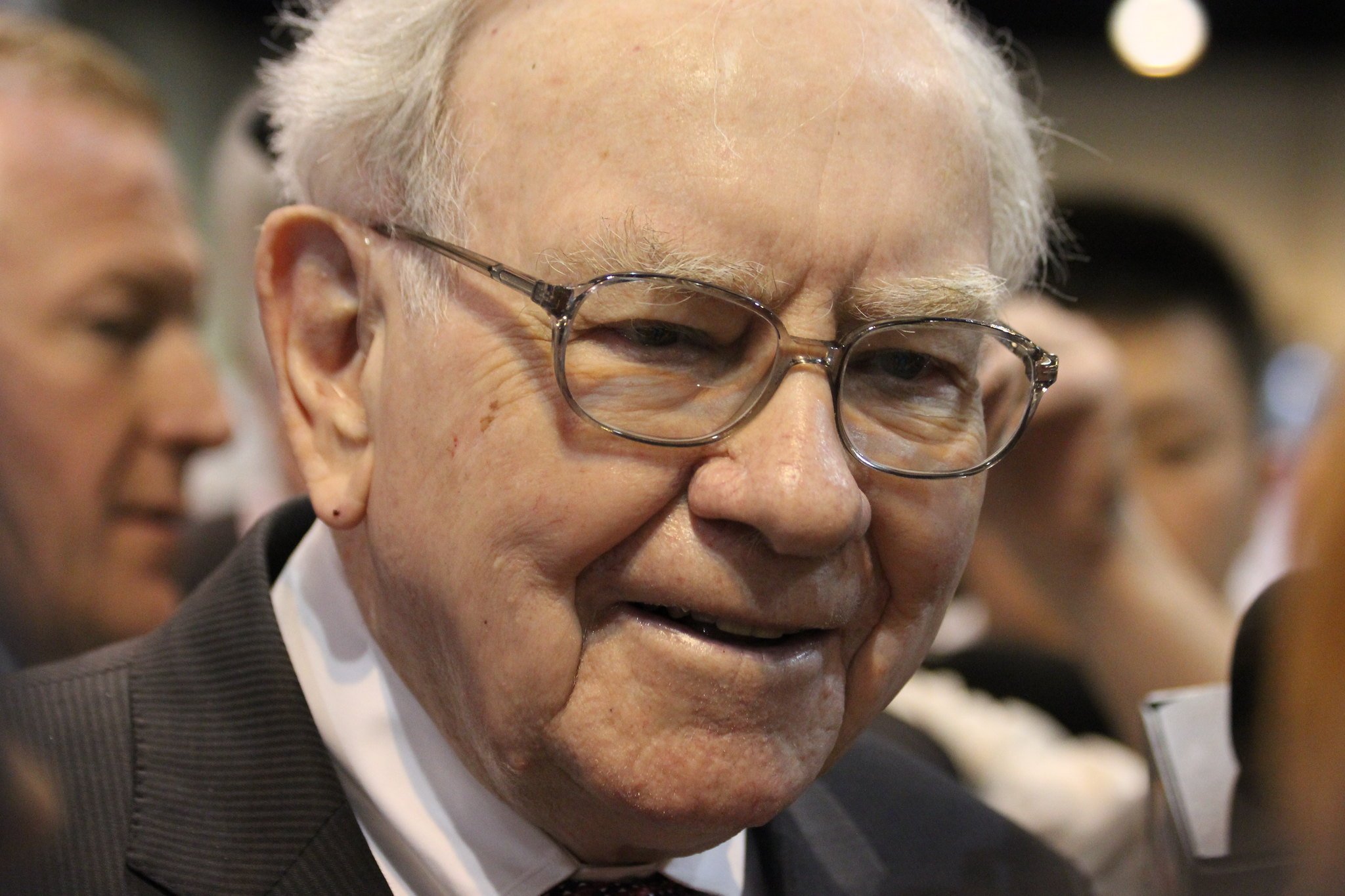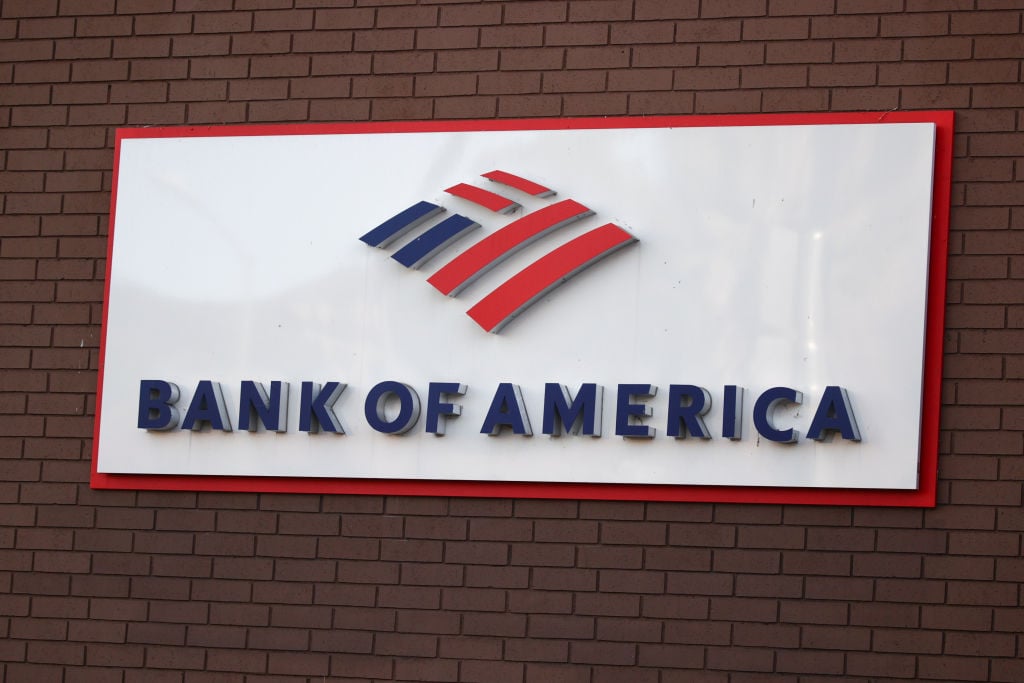Investing for the long term can be pretty difficult when a company makes headlines as often as Bank of America (BAC +0.72%). It's just too easy to get caught up in the gyrations of quarterly earnings, nightly newscasts, and 24-hour-a-day coverage on the Internet.
To counter that, I think it's critical to occasionally take a step back and force yourself to think long term. Given what we know today about the company, the market, and the economy, where do we think Bank of America's stock will be when the calendar reaches 2025?
The company
One thing is certain: Bank of America today is a much better bank than it was in 2006 and 2007. For the next 10 years, those improvements should provide the bank with tremendous benefits.

Image source: Getty Images.
Bank of America is simpler and more conservative than in the past. The days of aggressive acquisitions and sacrificing risk for growth are over. Thus far, the bank's reshuffled management team hasn't repeated mistakes such as the Countrywide acquisition. Investors should hope that discipline continues.
The bank is leaner today than it has been in years, largely driven by the successful completion of CEO Brian Moynihan's "Project BAC" cost-cutting initiative. The hard work and tough choices required to implement the plan should save the bank $8 billion annually in costs. For context, the bank reported annual net income of $8 billion or more just once since 2009. Those savings are going to have huge and lasting benefits to the bank over the next 10 years.
Given its raw size, Bank of America will continue to be a leader in the retail banking space over the next 10 years. Its massive deposit base and ubiquitous branding virtually guarantee it. As time moves farther and farther away from the real estate crisis and Great Recession, it's very likely that the bank's profits will also rise to match other large retail banks in terms of return on equity and return on assets.
The bank may not reach the truly impressive ROAs put up by Wells Fargo (WFC 0.65%) or U.S. Bancorp (USB +0.83%), but it doesn't have to. It simply needs to return to a normalized level that matches, instead of trails, the industry.
The markets
After falling precipitously during the financial crisis, Bank of America has bounced back strongly in recent years. The stock is up 173% since Dec. 31, 2011, nearly tripling the S&P 500.
That said, B of A still trails the industry in terms of its price-to-book value.
At the time of this writing, Bank of America trades at a price-to-book ratio of 0.73. Generally speaking, a price-to-book ratio below 1.0 is considered cheap. Wells Fargo trades at 1.64 times book, and U.S. Bancorp comes in at 1.97.
So while Bank of America's stock has enjoyed a healthy rebound from the market bottom, it doesn't command the premium valuations given to other banks with better returns. If we give Moynihan and the rest of his leadership team the benefit of the doubt, it's reasonable to assume that the bank's valuation relative to its peers will improve over time. Will that happen in one year? Two? Ten? It's impossible to say, if it even happens at all.
One thing that is certain, though, is that between now and 2025 we'll know a lot more about what Warren Buffett thinks of Bank of America. In 2011, Buffett purchased a $5.25 billion position of preferred shares in the bank that pays him a 6% annual dividend and gives him the right to 700 million shares for $7.14 each. That option to buy expires in September 2021. Those options have already produced a handsome paper profit, but Buffett has indicated that he currently intends to hold them until they expire in 2021.
The economy
The credit cycle will be another consideration that will significantly drive Bank of America's valuation over the next 10 years. It is a fact that the economy is cyclical and that some day in the future the U.S. will enter into another recession. No one knows when or how bad it will be, but you can be certain that it will happen.

Image source: Getty Images.
Statistically, the next recession will almost certainly happen before 2025. In modern history the U.S. has entered a recession every six or seven years; 2025 would mark 19 years of economic expansion and represent the longest period between recessions in U.S. economic history. Could it happen? Maybe. But it's far, far more likely we'll have dealt with another recession by then.
How Bank of America will fare in that next recession will, in my opinion, be the single largest contributor to the bank's stock performance over the next 10 years.
I've written before about how the credit and risk management culture at Bank of America is the bank's greatest weakness. Time and again over the past 40 years, the bank has taken on too much risk when the times were good, and that risk has come back to bite when the times turned tough. The financial crisis is just the latest example.
The million-dollar question is whether the new leadership at B of A can change that culture before the next recession.
My personal belief is that Bank of America won't fix its credit culture by 2025. The bank is simply too large and the culture too deeply ingrained with years of institutional momentum. Moynihan deserves a lot of credit for the progress he's made since taking over the CEO role, but I fear that reversing the credit culture may be too big of a task in this time span for any leader.
So where will Bank of America's stock be in 10 years?
Taking a holistic view, we're pulled between a few key contradictions. On one hand, the bank is a leaner, simpler, and improved version of itself after only a few short years under the leadership of Brian Moynihan. Further still, the bank's valued pretty cheaply relative to book value when compared with other retail institutions in the United States. But the elephant in the room is the bank's repeated history of failing to properly manage credit risks and suffering for it in down credit cycles.
Unfortunately, my gut tells me that the bank's history will probably repeat itself. The work to reshape the bank is truly impressive, and I fully anticipate the current management team to continue making improvements. However, the one improvement that matters the most is credit culture, and I don't think that's a problem that can be fixed between now and 2025.
That's why my bet is that Bank of America's stock will underperform between now and then.








